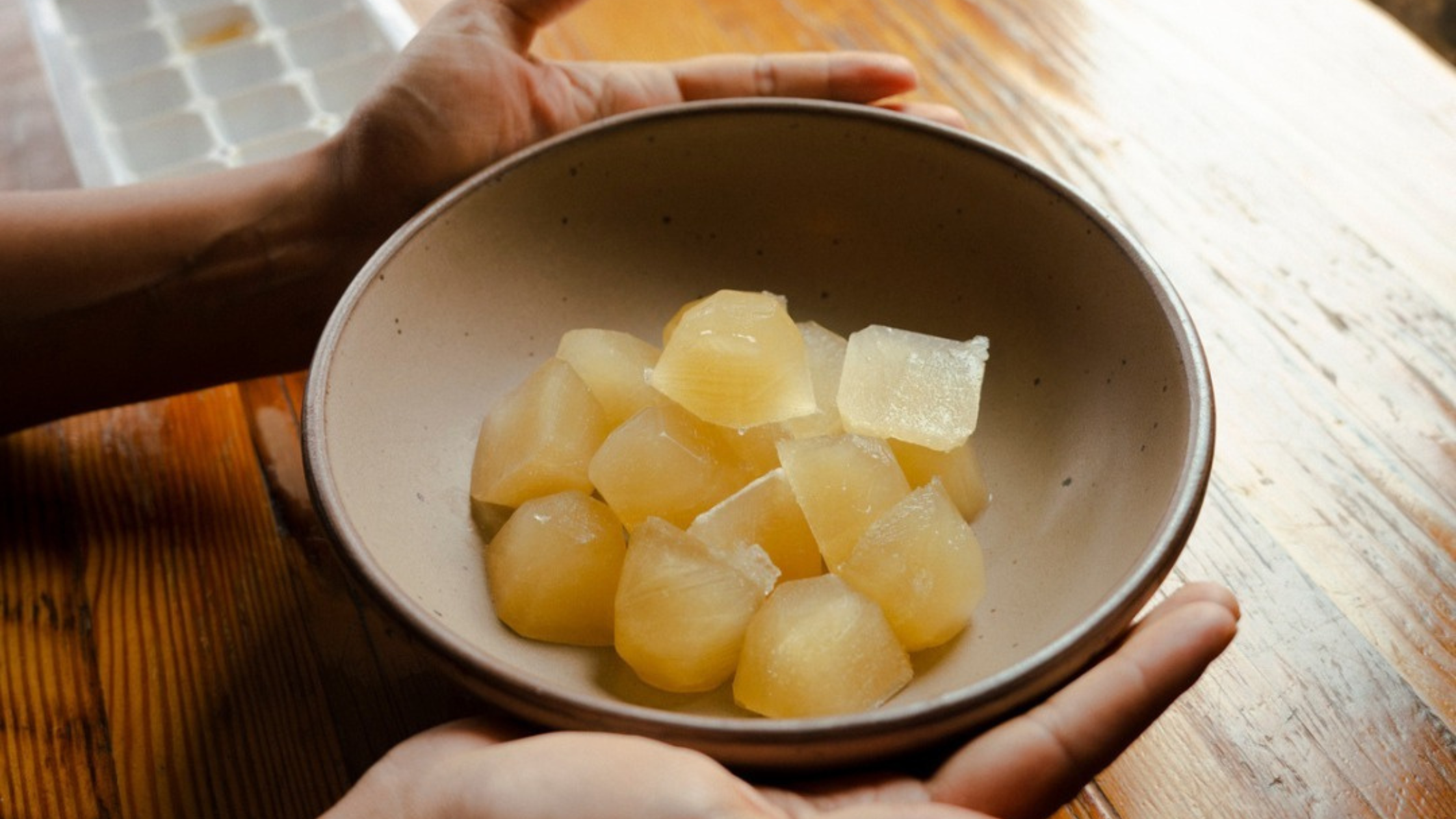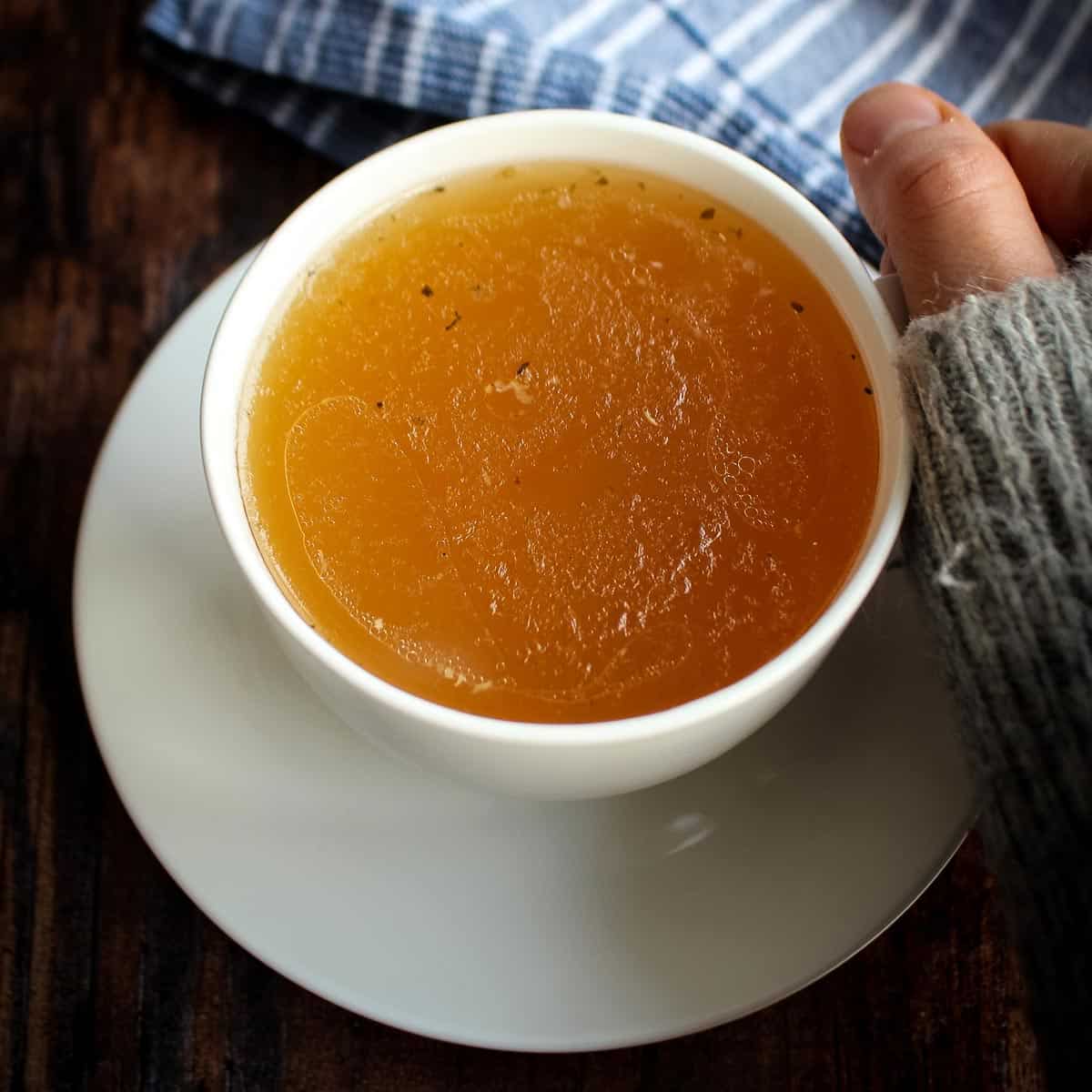Complete FAQ to bone broth during pregnancy and postpartum
Complete FAQ to bone broth during pregnancy and postpartum
Blog Article
The Importance of Healthy And Balanced Food: Why Bone Broth Is a Terrific Selection for Infants
Bone broth stands out as a nutrient-dense alternative, providing important vitamins and minerals that sustain development and advancement. What are the ideal ways to introduce bone broth to your little one?
Nutritional Benefits of Bone Broth for Infants
When you present bone broth to your baby's diet regimen, you're giving a nutrient-dense food that uses countless wellness benefits. Packed with essential minerals and vitamins, bone broth consists of calcium, magnesium, and phosphorus, which sustain your infant's growing bones. It's additionally rich in collagen, assisting in the advancement of healthy skin, joints, and connective tissues.
In addition, bone broth is an outstanding source of amino acids like glycine and proline, which play a substantial role in overall development and muscle advancement. These nutrients aid promote a solid body immune system, setting a solid foundation for your infant's wellness.
Additionally, bone broth is easy to digest, making it a mild choice for your youngster. By integrating this wholesome food right into their dishes, you're guaranteeing they receive important nutrients necessary for their overall wellness. Go ahead and make bone broth a staple in your infant's diet!
Just How Bone Broth Supports Food Digestion
Bone broth is packed with important nutrients that can actually benefit your baby's digestion. It promotes digestive tract wellness and assists with nutrient absorption, making it an excellent addition to their diet. By including bone broth, you're setting the phase for a healthier gastrointestinal system.
Nutrient-Rich Structure
One of the most nutrient-rich foods you can present to your baby's diet plan is bone broth, which is loaded with important minerals and amino acids that support healthy and balanced digestion. Rich in collagen, bone broth helps strengthen your child's intestine cellular lining, making it less complicated for their body to take in nutrients. By incorporating bone broth into your child's meals, you're offering them a wholesome food that nurtures their digestion system properly.
Promotes Digestive Tract Wellness
As you present bone broth right into your infant's diet regimen, you'll find it not only nourishes but likewise advertises intestine health efficiently. Rich in jelly, bone broth assists soothe the gastrointestinal tract, decreasing swelling and sustaining a healthy and balanced digestive tract lining. Additionally, the amino acids located in bone broth, such as glycine, help in food digestion and can aid stop usual stomach troubles.
Aids Nutrient Absorption
Presenting bone broth not only supports intestine health yet additionally plays a significant function in aiding vitamins and mineral absorption. When you provide your infant bone broth, you're offering a rich source of minerals and amino acids that improve their digestive procedures. The gelatin in bone broth helps to calm the digestive tract cellular lining, improving its ability to take in important nutrients.
Reinforcing the Body Immune System With Bone Broth

By including bone broth into your baby's diet regimen, you're offering an all-natural resource of sustenance that promotes health. Take into consideration making bone broth a staple in your baby's meals, as it can play a vital function in their immune health and wellness and development.
Easy Ways to Incorporate Bone Broth Into Baby's Diet regimen
Incorporating bone broth right into your infant's diet regimen can be straightforward and satisfying. Beginning by mixing a percentage of bone broth into pureed vegetables or fruits. This includes flavor and nutrients without overwhelming your youngster. You can likewise utilize bone broth as a base for soups or stews that you plan for the household, guaranteeing your infant gets a preference of tasty, well balanced meals.
If your baby enjoys grains, think about cooking rice or quinoa in bone broth instead of water for additional sustenance. These methods will certainly aid your baby enjoy the advantages of bone broth effortlessly!
Homemade vs. Store-Bought Bone Broth: What to Pick
Which is better for your infant: homemade or store-bought bone broth? Self-made bone broth offers you total control over the components. You can pick top quality bones, organic veggies, and herbs, guaranteeing your infant obtains one of the most nutrients without ingredients or preservatives. Plus, making it in your home can be a satisfying experience, permitting you to bond with your infant while preparing wholesome food.
On the other hand, store-bought options are convenient and conserve you time. They usually include chemicals and may not match the deepness of taste and nutrition you obtain from homemade broth. If you go with store-bought, seek brands that are organic and devoid of additives.
Eventually, if you have the time and sources, homemade bone broth is the superior selection for your child's wellness. If you're brief on schedule, pick a high quality store-bought alternative as a back-up.
Age-Appropriate Bone Broth Serving Suggestions
As your baby grows, it is very important to customize bone broth serving suggestions to their developing stage. For babies around six months, start with a couple of does of diluted bone broth. Mix it with water or breast milk to make it easier for them to absorb. As they become accustomed to tastes, you can slowly introduce thicker broth by lowering the dilution.
Once your infant reaches around eight months, you can serve it cozy in a sippy cup or include it to soft foods like purees. By the time your child is around a year old, take into consideration offering bone broth as a standalone beverage or blending it into soups and stews. Just ensure to keep the broth low in sodium. Always check for any kind of reactions, and consult your doctor if you have worries regarding introducing new foods. Appreciate this nourishing enhancement to your baby's diet plan!
Various Other Healthy And Balanced Foods to Couple With Bone Broth for Babies
When you're wanting to enhance the dietary value of bone broth for your infant, take into consideration coupling it with nutrient-dense vegetables like carrots and spinach. Entire grain alternatives, such as quinoa or brown rice, can also add texture and fiber. Furthermore, including healthy protein resources like shredded chicken or lentils will complete the meal perfectly.

Nutrient-Dense Vegetables
Nutrient-dense vegetables are a fantastic enhancement to bone broth for infants, enhancing both taste and nourishment. Including veggies like carrots, spinach, and sweet potatoes can boost the nutrient content of your broth. Carrots give beta-carotene for healthy and balanced vision, while spinach is packed with iron and calcium, vital for growth. Sweet potatoes include natural sweetness and are abundant in fiber, assisting digestion.
You can conveniently mix these veggies right into the broth or offer them as soft, prepared items together with it. This not only presents brand-new flavors but likewise encourages your kid to delight in a selection of nutrients. By coupling nutrient-dense veggies her explanation with bone broth, you're laying the foundation for a healthy and balanced diet right from the beginning.
Entire Grain Options

Healthy And Balanced Protein Sources
Bone broth sets incredibly with various healthy protein resources, better enhancing your infant's diet regimen. Try including soft, cooked lentils; they're nutrient-dense and stuffed with protein. You can likewise blend in shredded chicken or turkey, which are simple for your child to absorb. If you're trying to find plant-based options, consider mashed tofu or pureed chickpeas-- both offer excellent protein without overwhelming flavors. Eggs, when introduced safely, are one more excellent choice; they're versatile and loaded with nutrients. Eventually, mixing in some well-cooked quinoa can include a great structure and additional protein. By incorporating these healthy protein resources with bone broth, you're giving your infant a balanced, nourishing dish that sustains their development and growth.
Frequently Asked Questions
Can Bone Broth Reason Allergic Reactions in Newborns?
Yes, bone broth can cause allergies in infants, especially if they're sensitive to certain active ingredients. Always consult your pediatrician prior to presenting brand-new foods and monitor for any kind of indications of allergic reactions after feeding.
Exactly How Should Bone Broth Be Kept for Infants?
You need to keep bone broth in impermeable containers, either in the refrigerator for as much as a week or in the more helpful hints freezer for as much as 3 months. organic bone broth copyright. Constantly thaw it appropriately prior to serving to your baby
Is It Safe to Give Bone Broth to Premature Infants?
It's essential to consult your doctor before presenting bone broth to early babies. They'll assess your infant's details health and wellness requirements and guarantee it's secure, considering their special nutritional requirements and developing phase. Always prioritize expert advice.
What Are the Indications of Intolerance to Bone Broth in Babies?
When introducing bone broth, look for indicators like fussiness, rash, diarrhea, or throwing up. If your child reveals any one of these responses, it's finest to get in touch with a pediatrician before continuing to supply it.
Can Bone Broth Be Utilized as a Meal Substitute for Newborns?
No, you shouldn't make use of bone broth as a meal replacement for infants. It does not have crucial nutrients required for their development. Instead, integrate it right into their diet along with balanced dishes for added nutrition and taste.
Report this page